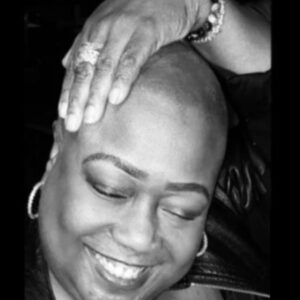The Spark That Keeps Us Going: Val Carson’s Unfiltered Take on Mental Health
Why This Message Matters Now More Than Ever
In her powerful debut episode of The Social Work Report, Val Carson doesn’t hold back. She steps boldly into the spotlight to deliver a soul-stirring message on mental health that’s both real and refreshingly raw.
After 26 years in the field, she’s earned the right to speak on what many still tiptoe around. And in true Val fashion, she doesn’t just speak—she pours out truth.
“Mental health awareness is so important and so much more a problem than people think it is.”
Val opens the show with love, gratitude, and energy—a signature vibe that makes you feel like you’re sitting across from a close friend who also happens to be a licensed master’s social worker with nearly three decades of experience.
This isn’t just about social work. This is about living.
Mental Health Isn’t Just a Topic—It’s a Lifeline
Val doesn’t sugarcoat the facts. Mental health is not some sidebar in life—it’s central to how we function, how we relate, and how we survive.
“Where you are, where your mind is, is just like taking your blood pressure.”
She challenges the outdated ideas that therapy is only for crisis or that asking for help makes you weak. If your stomach hurts, you see a doctor.
So why hesitate when it’s your mind that’s in pain?
In a world buzzing with distractions, Val encourages listeners to stop and ask:
Where are my emotions right now?
Am I coping well?
Do I even know what coping well looks like?
When the Kids Aren’t Alright
Val shines a spotlight on a truth too many ignore—our children are hurting too. And their pain often hides in plain sight.
“There’s a lot of anxiety among our teenagers—even our younger children.”
She warns us about brushing off their emotions and letting stigma block the help they desperately need.
Whether it’s bullying, performance pressure, or the silent harm of social media, our kids are absorbing more than we know.
And speaking of social media? Val doesn’t demonize it, but she does tell the truth about its double-edged impact.
“Cyberbullying exists. And it can destroy someone mentally and emotionally.”
It’s a wake-up call for any adult who still thinks digital drama is just “kids being kids.”
Technology Isn’t the Enemy—Isolation Is
One of Val’s most empowering takeaways is this: help is closer than ever before. Thanks to virtual therapy, support is available right on your phone.
No more waiting for rides, taking time off work, or making excuses.
“We can just almost get all the help we need virtually. Like you don’t have an excuse.”
But she adds—therapy only works if you’re honest. The key to progress is transparency. If you’re not being real with your therapist, you’re not being real with yourself.
The Power of Resilience
The heart of Val’s message beats with one word: resilience. She explains that resilience is simply how we bounce back—how we recover, reframe, and reclaim our peace.
“Resilience is a key element to our well-being.”
Whether you’re navigating trauma, loss, anxiety, or just life’s chaos, resilience isn’t about always being strong.
It’s about knowing when to reach for support, when to rest, and when to rise.
Your Mental Health Is Your Power
Val’s message isn’t just about acknowledging struggle—it’s about embracing the light within.
“Even the girl with the super smile is not always OK.”
She’s been through dark days too. But she keeps showing up.
Keeps smiling.
Keeps finding that spark.
And that’s her invitation to everyone listening: find your spark too.
Don’t wait for the breakdown to start the breakthrough.
Assessment: Finding Strength in the Struggle
Val Carson’s premiere episode is more than a podcast—it’s a declaration of hope.
She delivers an unforgettable reminder that mental health is not a weakness and therapy is not shameful.
Whether it’s you, your child, your friend, or someone you barely know—someone needs to hear this message.
Mental health matters. Not just in May. But every day.
Because the truth is simple: “We are who we are because of our physical self and our emotional self and our psychological self.”
So start today.
Check in with yourself.
Reach out.
Be honest.
Find your spark.
And remember:
“You don’t have to be sad all the time. You don’t have to have problems all the time. You can be a well person. You can have a well mind.”
This is The Social Work Report. And this is only the beginning.










